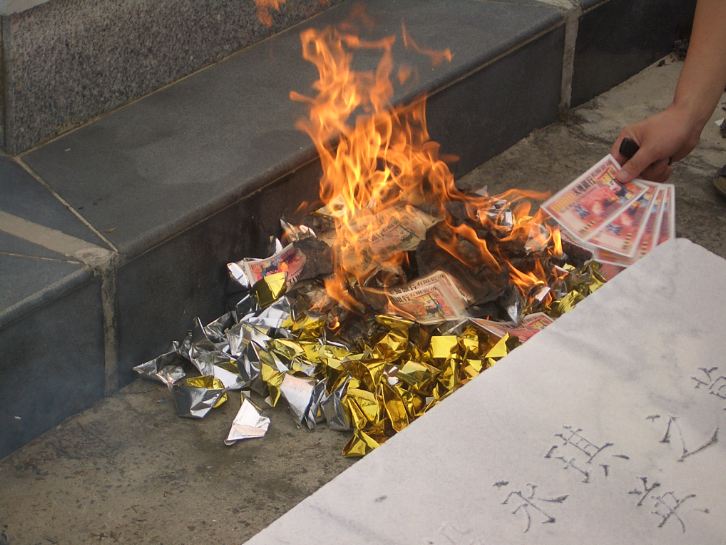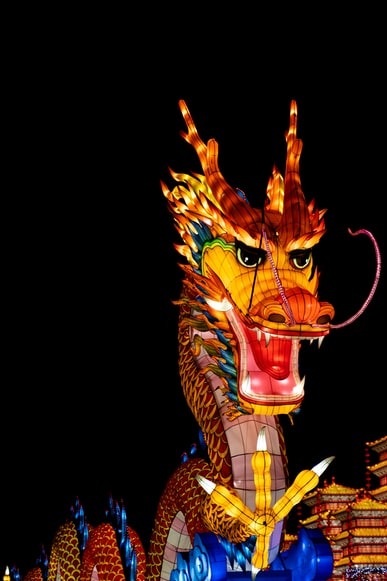China is one of the most culturally enriching countries in the world to live, work, and visit. Part of their way of life is celebrating unusual and unique festivities and holidays passed down through thousands of years, as well as some recent ones that were celebrated only in the past decades. Here, let’s discover more about these celebrations that we don’t normally see on the Western radar, but what truly makes China truly diverse and fascinating.
Qingming Festival
Qingming Festival is a traditional festival observed in China for over centuries. Also regarded as the “Tomb Sweeping Day,” this one-day holiday entails families paying respect and commemorating their ancestors, cleaning the latter’s tombs, leaving gifts, such as flowers, tea, alcohol, eggs, and qing tuan, a sweet green glutinous rice ball.
In addition, paper money and incense are also burned in front of graves, in hopes that the money will get to their ancestors in the afterlife. Other modern offerings include paper crafts taking the shape of luxury goods, ranging from paper iPhones, paper cars, and even paper apartments!
Like other festivals, the Qingming Festival’s celebration follows the Lunar Calendar, usually held 107 days after the beginning of winter. People have a day off from school and work to pay homage to the ancestral graves, but those who cannot travel honor their ancestors at martyrs parks.
Duanwu Festival
One of the most ancient festivals in China, Duanwu Festival memorializes the death of Qu Yuan, a highly venerated Chinese poet and minister renowned for his contributions to literature and his patriotism. Also called the “Dragon Boat Festival,” it takes place during the summer where people gather to watch or participate in dragon boat races.
Part of the celebration is eating zongzi or sticky rice dumplings. The loyal Qu Yuan, who was betrayed by his rivals, took his life in 278 BC by drowning himself in the Miluo River. Villagers tossed rice balls in the rivers to keep fish from consuming Qu Yuan’s remains as they searched for him. Thus explaining the role of zongzi in the occasion. Today, zongzi is so popular that it’s now available any time of the year.
Hungry Ghost Festival
Celebrated usually at the end of August or during the 15th day of the 7th month in the Lunar Calendar, the Hungry Ghost Festival is observed by the Chinese to worship their deceased ancestors. It’s believed that the portal opens and the ghosts are let out of the underworld.
As such, people observe special ceremonies, such as preparing food offerings and burning incense and paper mache of houses, cars, gold, and clothes, for the ghouls and spirits of the departed that roam the real world. Lots of precautions and superstitions also accompany the holiday, telling everyone not to hang clothes through the night, not taking the last ride, and not taking selfies.
Qixi Festival
Aside from February 14th, China celebrates its own Valentine’s Day, which also has its own distinct tale like the celebration that originated in the West.
Known as the Qixi Festival or the Double 7th Festival, falling on the 7th day of the 7th month in the Lunar Calendar, represents the meeting of the Cowherd and the Weaver Girl (Zhinü). According to the astrological legends, the two lovers were banished to opposite parts of space, only allowed to reunite once yearly on the moon on the given day.
Ancient China used to commemorate the event with single women praying to Zhinü and newly-weds paying homage to the celestial couple as an adieu to singlehood. Today, people celebrate Chinese Valentine’s Day by sending chocolates, flowers, and gifts to their loved ones.
Chongyang Festival
Chongyang Festival is a traditional Chinese holiday that falls on the 9th day of the 9th Lunar Month, celebrating the autumn harvest for the year. People ascend to high places to admire chrysanthemums, honor nature, and keep away evil spirits. It’s also commemorated by eating Chongyang cake, also known as the flower cake, five-color cake, or the chrysanthemum cake. Set as Seniors’ Day starting in 1989, the Double Ninth Festival also serves as a great opportunity for people to visit their elderly loved ones, enjoy the weather, and celebrate good health and long life.
Cheung Chau Bun Festival
Cheung Chau Bun Festival is a traditional festival that started in Cheung Chau island in Hong Kong, as a ritual done by fishing communities to wish for safety from pirates. Today, it’s celebrated through “bun snatching” where participants climb sixty-foot tower buns. They race to the top of the bun tower within 3 minutes, taking as many buns as possible in the process. The more buns snatched, the more luck the person can share with his family.
Golden Week Festival
The Golden Week is a full seven-day holiday created by the Chinese government in 1997. It was done to battle the financial crisis during the said time. The holiday aimed to increase spending on travel and goods that will energize the economy. It’s not everywhere where you can have a mandated paid national holiday that lasts a week long!
Celebrated from October 1st to 7th, the Golden Week now serves as the biggest week for tourism in China, where the Chinese reunite with families and take trips around China, as well as other countries in Southeast East Asia, Japan, and Europe.
Takeaway
With these festivals and holidays, China proves how culturally exciting it is. There are many other unique celebrations in China, happening all year round, along with many other worldwide holidays. No matter what you choose to see, be ready to experience sheer bliss and get lasting memories on your visit to the country.



